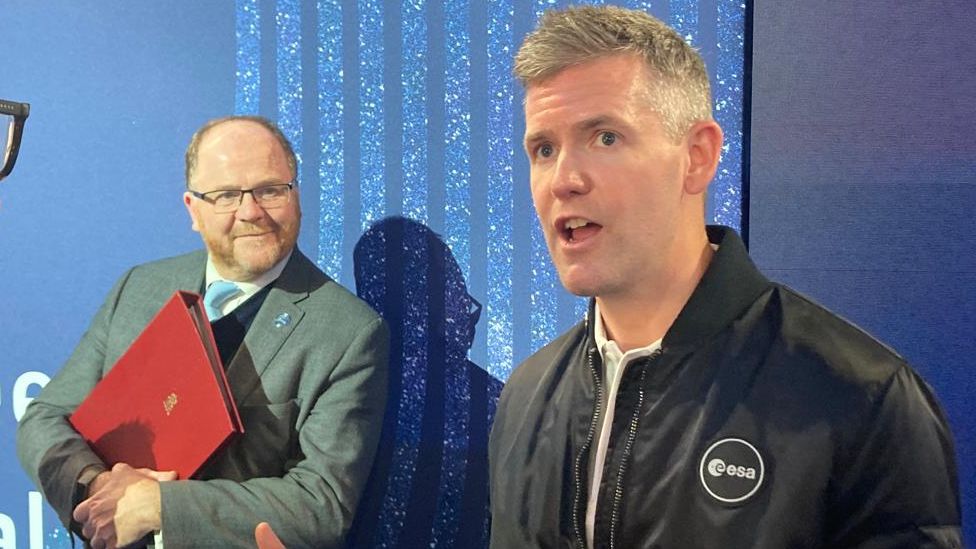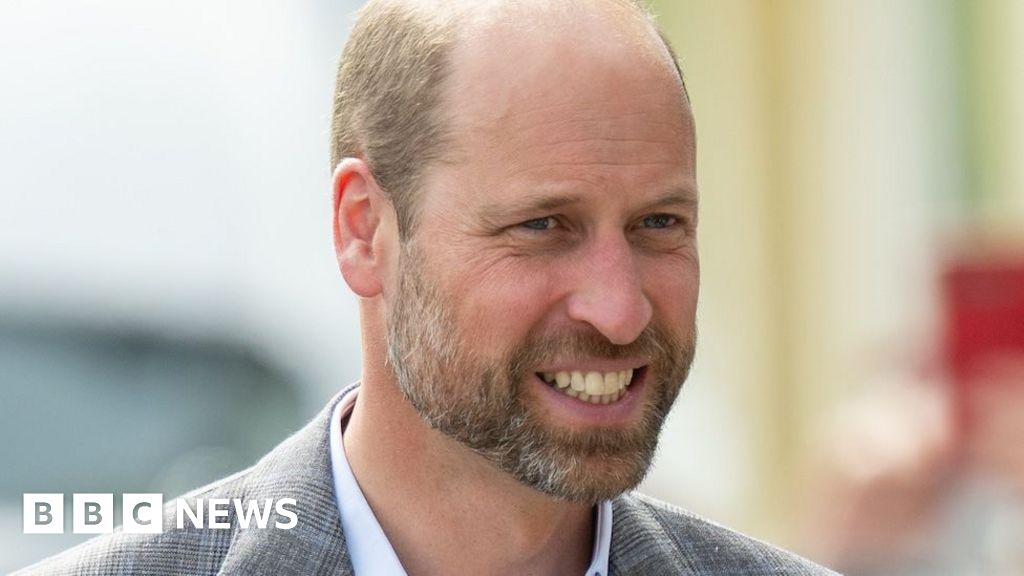ARTICLE AD BOX
 Image source, BBC/Jon Amos
Image source, BBC/Jon Amos
John McFall had his right leg amputated after a motorcycle crash
By Jonathan Amos
BBC Science Correspondent, Paris
A disabled British man has been chosen for astronaut training by Europe's space agency, a world first.
John McFall, 41, joined 16 men and women selected for the European Space Agency's (Esa) first new class of astronauts in 13 years.
His right leg was amputated after a motorcycle crash when he was 19. He became a professional athlete and represented the UK as a paralympic.
Another British woman, Rosemary Coogan, was selected as a career astronaut.
Esa said it wanted to widen the definition of what it means to have "the right stuff" to go into space.
This announcement does not mean McFall is guaranteed to go into orbit. Instead, he will be part of a feasibility programme to see what the requirements would be for that to be possible.
"It's really important for us to involve everybody that has an excitement about space," said Dr David Parker, Esa's director of human and robotic space exploration.
"We're making a first step by opening up this call to people that have certain types of physical disability, and we really hope we'll be flying them on a mission to the International Space Station," he told BBC News.
Esa will be working with Nasa on the feasibility study. They need to establish first that a para-astronaut's inclusion wouldn't compromise crew safety. It's also possible the space vehicles in which they travel will need adaptations.
The five new "career" astronauts are guaranteed flights, assuming they come though their training.
They were chosen from more than 20,000 applicants. On the diversity theme, the number of women wanting to join the corps was up significantly on the last recruitment in 2009, and this has fed through to the final selection.
The announcement means that Samantha Cristoforetti will no longer be Esa's sole female astronaut.
"I am just over-happy that finally we have some some new colleagues," she said. "It's going to be a much more diverse group, and I'm certainly looking forward to not being any more the only woman astronaut in the European astronaut corps. That's important because the current composition of our corps does not reflect where we are in society."
The announcement of the new astronauts was made here in Paris at the Grand Palais Éphémère, where Esa member states have been meeting to set the programmes and budget of the agency over the next three to five years.

 2 years ago
85
2 years ago
85








 English (US) ·
English (US) ·